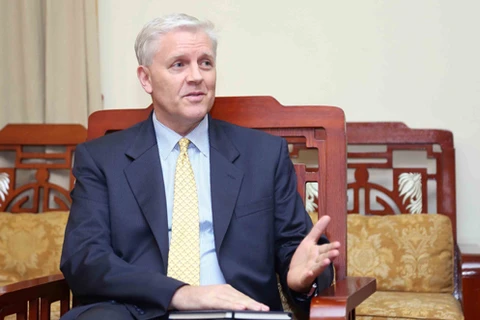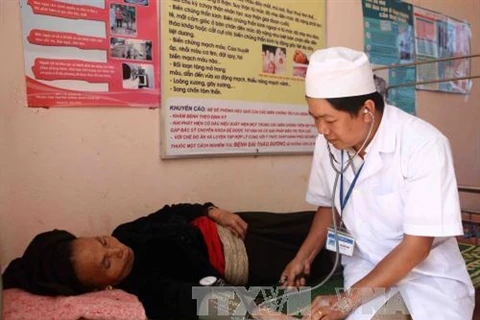Moscow (VNA) – Russian scholars, experts and students in Vietnamese, ASEAN and Asian Pacific studies gathered in a workshop on Vietnam’s reform experience.
Hosted by the Centre for Vietnamese and Southeast Asian Studies under the Institute of Far Eastern Studies of the Russian Academy of Sciences, the workshop heard over 20 reports on Vietnam’s internal and foreign policies and the country’s history, culture and language.
Vladimir Kolotov, head of the Faculty of History of Far Eastern Countries at Saint Petersburg State University , said late President Ho Chi Minh's thought was decisive factor for Vietnam’s victory in the war in Indochina, as well as for the country’s achievements in economic reform process in late the 20th century and early the 21th century.
Evgheny Kobelev from the Russian Academy of Sciences highlighted the role played by the Communist Party of Vietnam (CPV) in the nation’s Doi moi (renewal) process, saying that Vietnam’s new foreign policies helped it become more attractive to the international community, thus facilitating the country’ economic development.
According to Prof. Tatina Filimonova from Lomonosov Moscow State University , the renewal policy launched by the CPV in 1986 brought a change to Vietnam’s literature.
Meanwhile, Ekaterina Starikova from the Saint Petersburg University of Humanities and Social Sciences spoke highly of Resolution approved by the CPV in 1998 on b uilding the Vietnamese culture imbued with national identity. She said the resolution particularly highlighted the conservation and development of cultural identities of ethnic minority groups.
Speaking at the workshop, Vu Thuy Trang, from the Institute for European Studies under the Vietnam Academy of Social Sciences, briefed participants on achievements in economic development and political stability during the country’s Doi moi process.-VNA
























